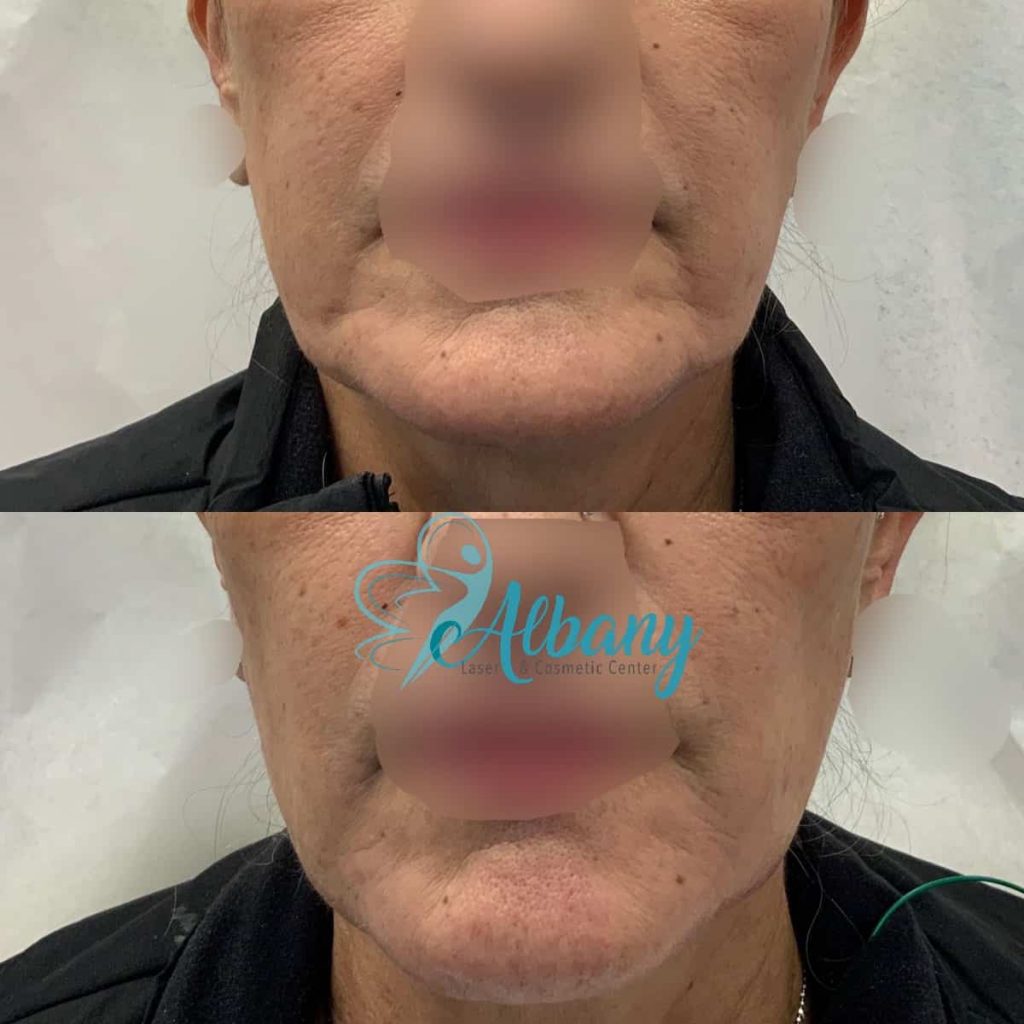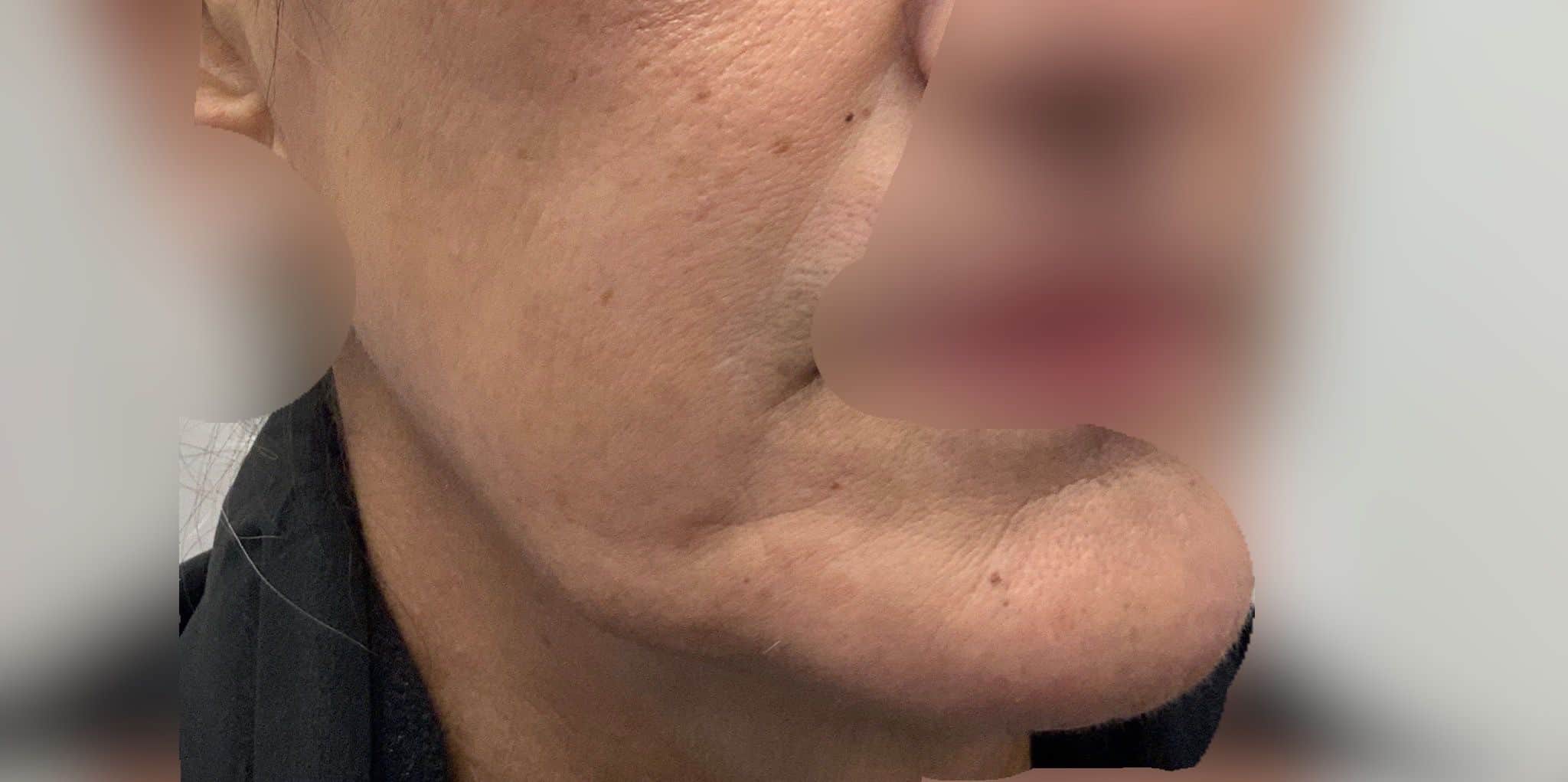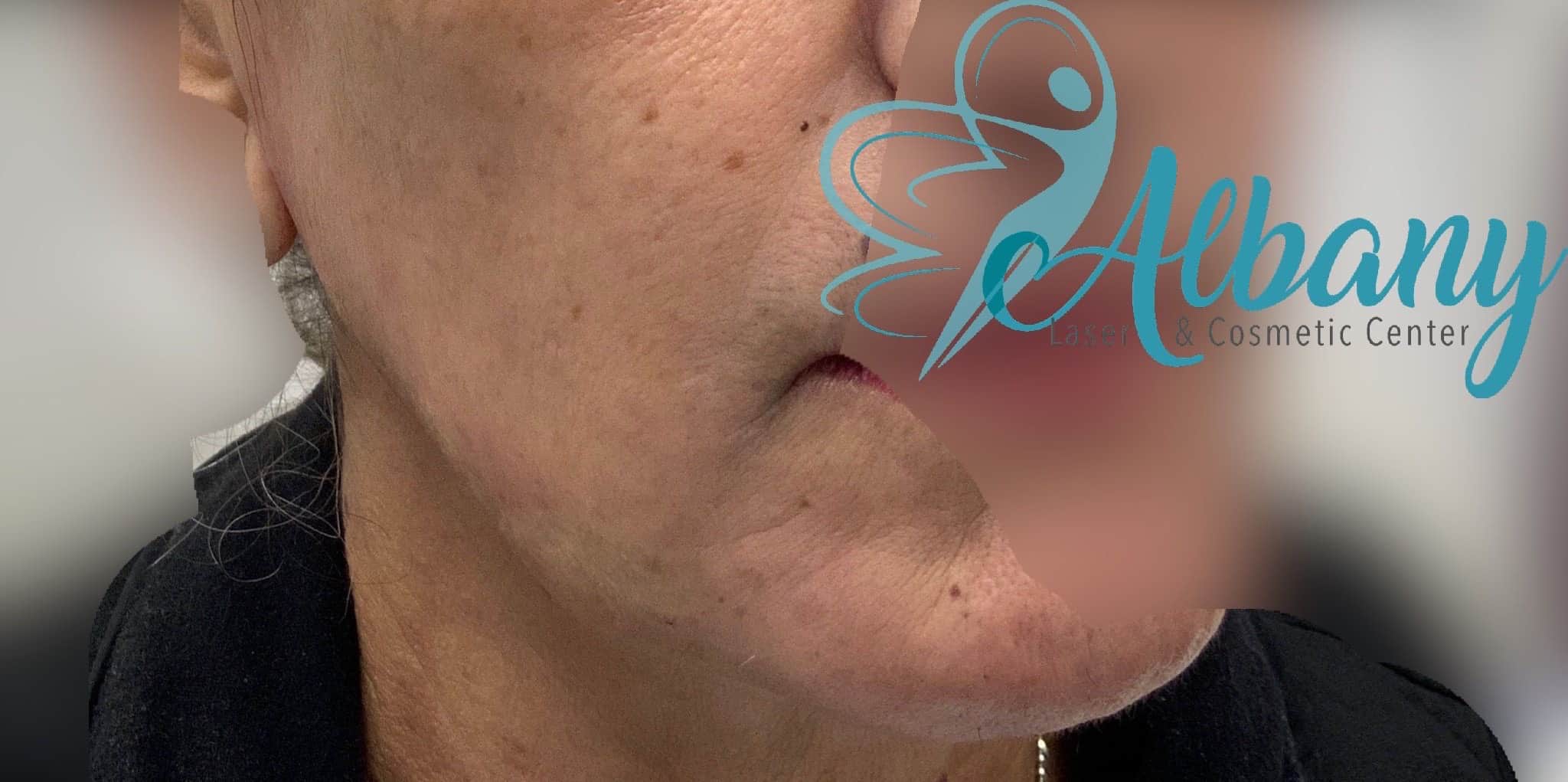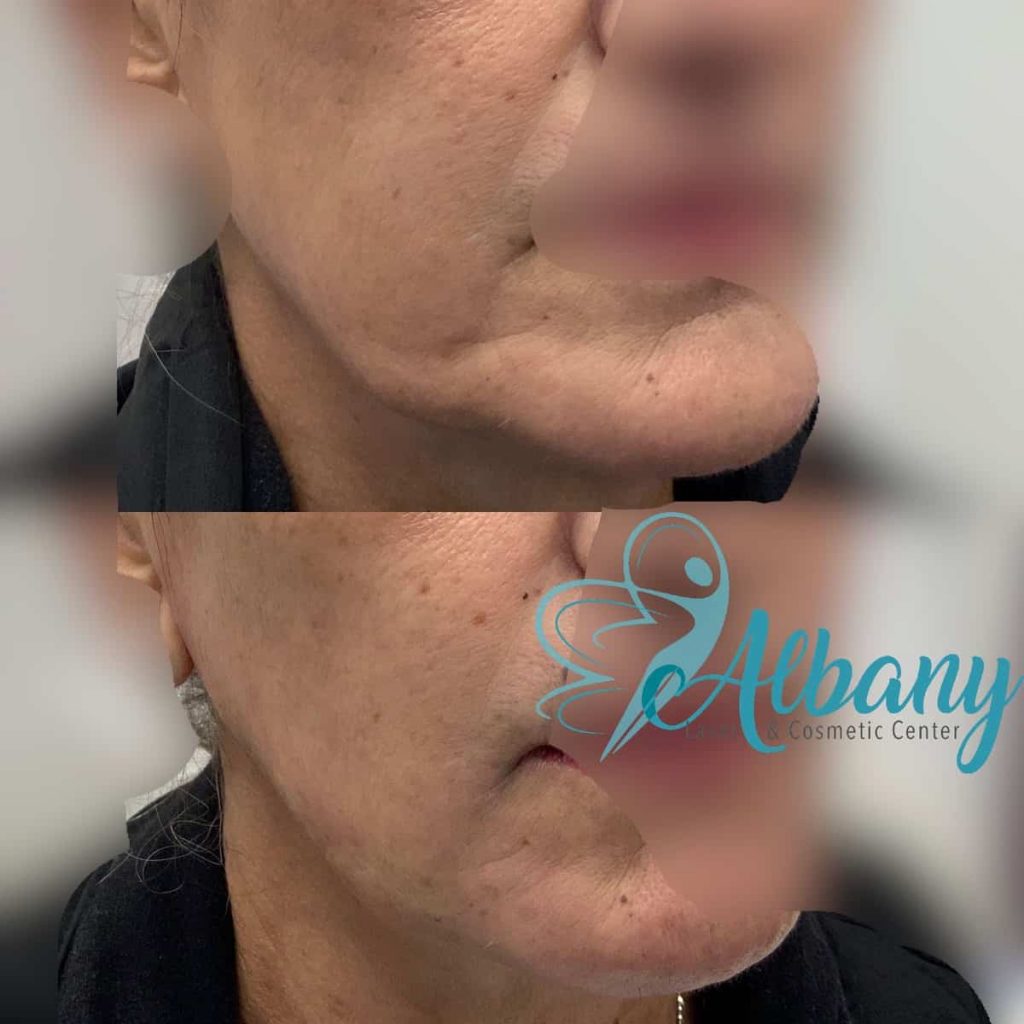Mini facelift Results
A mini facelift involves using fillers and thread sutures, which results in a natural lift in facial skin and features. This is the perfect approach for clients who do not wish to go through a surgical facelift and tried dermal filler previously. The threads cause the skin to pull back and thus produce the lifting effect.
Threads lift the skin and fight aging by inducing the body’s “healing response,” which causes the body to send large amounts of collagen to the treated areas. This is significant because collagen plays an important role in the aging process.
What are the benefits of a non-surgical facelift?
The biggest benefit of thread lifts over a facelift is the significantly shorter recovery time for many patients. Because a patient must be heavily sedated during facelift surgery, they must arrange for someone to drive them home from the hospital. Most facelift patients require round-the-clock care from a caregiver for at least three days after surgery. Besides, childcare assistance may be required if the patient still has children at home. Patients with a facelift usually take one to two weeks off work to recover.
On the other hand, a thread lift is relatively simple to recover from. Thread lifts can be done under local anesthesia rather than general anesthesia, allowing patients to drive home and care for themselves right after their procedure. While some patients will experience some soreness, redness, and swelling after a thread lift and may wish to take the rest of the day off, most will be able to return to work immediately. Strong pain medication is rarely required after a thread lift, making it easier for patients to resume their normal routine. As a result, this procedure is ideal for people who have children at home or demanding jobs.
The ideal thread lift candidate is in their late thirties to early fifties, whereas most patients over 55 will reap greater benefits from facelift surgery. On the other hand, Thread lifts can provide an alternative to surgery for older patients who cannot have surgery due to medical reasons. Many people with age-related conditions that make them ineligible for surgery (such as high blood pressure, type 2 diabetes, and cardiovascular disease) can benefit from thread lifts because they can be performed under local anesthesia. If you have serious health issues, talk to your doctor about whether a thread lift is right.
Understanding the difference between PDO threads and Silhouette
PDO threads are Sutures made of PDO, a biocompatible material that has been specially designed for safe re-absorption by the body. They stay in place for about four to six months before gradually dissolving. Patients can expect to see their thread lift results at least a year after their treatment. The lingering improvement in skin condition that results from collagen infusion causes this long-lasting effect.
Because these threads used during the Silhouette procedure are designed to lift the skin rather than stimulate collagen production (though it will achieve both goals, of course), the threads used are slightly different. They contain several sutures interspersed with tiny “cones” that grab tissues rather than be smooth or barbed. This allows the threads to gather more skin, giving the cheeks and jowls a more noticeable lift. Silhouette threads are also designed to produce long-lasting results; patients can expect their Silhouette InstaLift to last one to three years.
Case # 1075
Dr. Alhallak, Ph.D. in Pharmacy, used four PDO threads to lift the lower face, give more definition to the jawlines, and one cc of dermal fillers.
Facts about this Case
- Procedure Cost: $1200
- Procedure Time: 45 Min
- Downtime: 3-7 days
- Results: Refreshed look
- Adverse Effects: Bruising
- Lasts 18-24 months



